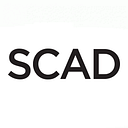SCAD September Reading List
“Artists and scholars seem to have an intuitive understanding of the importance of human crossroads in life,” says SCAD liberal arts professor Kenneth Foster. “My love for books and reading was my ticket to dispelling stereotypical expectations about the life trajectory of a young Black male living in public housing, especially in the 1950s.”
Dr. Foster is a social psychologist specializing in issues including identity, social stigma and empowerment. His research and writing have led him down diverse literary paths, and for that the SCAD community is grateful.
Frans De Waal, Our Inner Ape (Riverhead Books, 2005): “De Waal is a world-renowned primatologist and this seminal work uses our evolutionary ancestors to explain much of why and who we are as humans. To quote De Waal, ‘Ever since our ancestors swung from tree to tree, [human] life in small groups has been an obsession.’ An audacious and provocative read.”
Robert J. Sternberg, Psychology 101 ½ (APA, 2004): “Sternberg is a prolific author and broad thinker. His brief personal anecdotes explore topics such as why some artists periodically reinvent themselves. I have used this book for over a decade. Excellent for students’ (and others’) critical thinking, professional and personal development.”
Sidney Langer, From Slavery to 9/11: Reading in the Sociology and Social Psychology of Extreme Situations (Taylor & Francis, 2012): “This volume is an essential service to the general public, as well as social scientists. It provides a set of stark analyses of treatment and often lingering effects of atrocities such as the Jonestown massacre, Armenian genocide, Jewish Holocaust, African slavery and more.”
Walter Benn Michaels, The Trouble with Diversity: How We Learned to Love Identity and Ignore Inequality (Holt, 2006): “This provocative book is a timely examination of America’s psyche. It is a short, fast read that I would argue implores us to take a long look at what we think diversity means in the 21st century. A provocative polemic.”
Claude M. Steele, Whistling Vivaldi: And Other Clues to How Stereotypes Affect Us (W.W. Norton, 2010): “Steele provides a riveting argument, based on extensive research, as to why it is important to note, accept and deal with the insidious and powerful reality that we are all stereotype targets. You might say that his upbeat narrative approach whistles while it works.”
By Robert Almand
